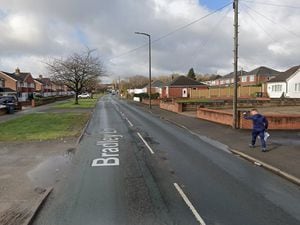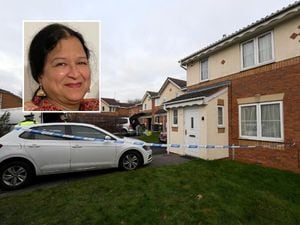Plaque unveiled to much-loved former Bilston councillor who fought for town's independence
A plaque has been unveiled to a much-loved former councillor who was the "heart and soul" of Bilston and who fought fiercely to maintain the independence of the town he loved.
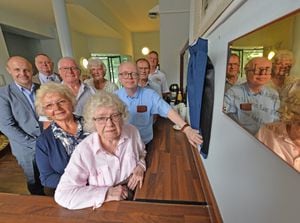
Tom Larkin, who served on Bilston Municipal Borough Council in the 1960s and later Wolverhampton Council for a decade, died on August 13 last year aged 90.
He was best known for standing up for the town and its proud history, and for being an historian who enjoyed researching and writing books on the area's history.
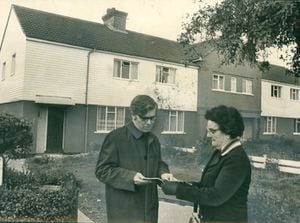
And now his efforts have been recognised with a plaque at Bilston Town Hall, in the centre of the town, at a ceremony which featured his family.
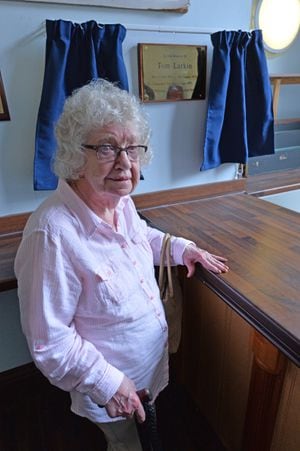
Emily Larkin, Tom's wife, said: "It means an awful lot. My husband was an extraordinary man and he worked very hard for anyone who came to him for help and always did his best.
"He was hard working, tenacious, and it's always said they broke the mould when they made Tom, god bless him. He was an extraordinary man and a very astute politician.
"I'm proud of the effect he had on people throughout his life. I'm proud of him and proud of the plaque and it's in a place he loved so much, in the town hall, and in the town he loved so much.
The 87-year-old, who was born and bred in Bilston like her husband and now lives in Portobello, said her husband enjoyed being a historian and she was "very happy" to see him do that.
"If they would've cut Tom open, they would've found he's Bilston right through," she said. "And I'm so grateful for Councillor Stephen Simkins for getting this done."
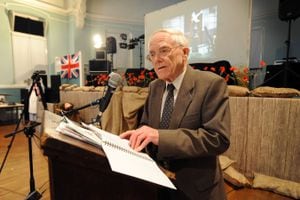
Hugh Larkin, Tom's son, added: "I think the last time I was here (at Bilston Town Hall), I was about six because that's when Bilston council ended and he used to bring me in here. This building was so central to what he believed in and to have the plaque in here, I can't think of anywhere better – this is the place.
"He was born here and apart from his National Service for two years, he has always lived within two miles of where we are now. He was born just down the road and for 90 years nearly, he lived within two miles of Bilston and when we had his funeral we had it at the Holy Trinity church so he was extremely attached to Bilston and meant a lot to him."
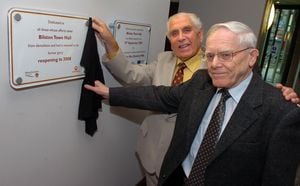
The 61-year-old, who now lives near Burnley in Lancashire, said: "I can't think of anywhere better for this than Bilston Town Hall. He would've been shocked if you said there would be a plaque here of him, but if you would've got him to admit it he would've said here for it. You can't be more central to Bilston than here."
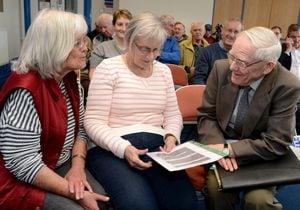
The commemorative plaque was organised through Wolverhampton Council's city assets team following a request from Councillor Stephen Simkins, who represents the Bilston East ward currently as Tom used to.
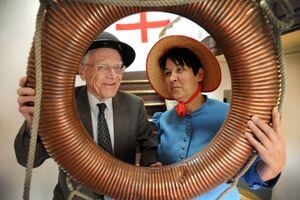
Councillor Simkins, who is also the authority's deputy leader and spoke during the ceremony, said: "I think it's fitting we recognise all the work Tom Larkin did, not just on the council but for promoting Bilston – he was a real believer in Bilston for Bilston people.
"He believed it was important for us to keep our fierce independence. For me, Tom was the heart and soul of Bilston and he was also a great character and sadly there's not so many characters left of the same mould as Tom.
"And this is a small thing we can do for him. It pleases me to have known him and I've learned a lot from him – and I certainly carry him with me. And I think we can all learn a lesson from how Tom represented himself.
"He was a councillor proper, all for the people and nothing for himself. He was a real politician, a debater who was driven through social justice and that's what I learned in abundance through Tom. He was a great man and a man of the people."
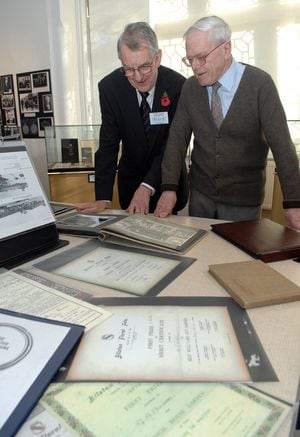
Tom, who was born in October 1930, had served on the Bilston Municipal Borough Council in the 1960s and later on Wolverhampton Council, representing Bilston East between 1973 and 1983.
He was an outspoken critic of Government changes – which came through the Local Government Act – which impacted the town in 1966 and saw Bilston become part of Wolverhampton despite a fierce campaign.
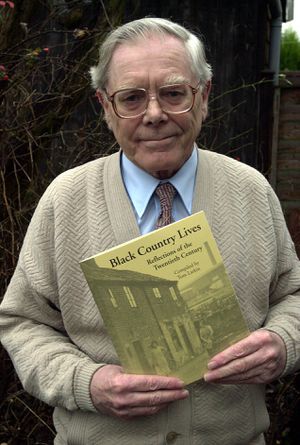
The historian said the changes across the country marked a "complete destruction of 19 historic councils" which were replaced by enlarged local Government bodies "achieved through forced amalgamation".
And the Labour councillor was subsequently critical of the next changes made by the Government in 1974 which saw the creation of the West Midlands County Council, or "the metro" as it became known, which lasted for 12 years – something he called a "total disaster".
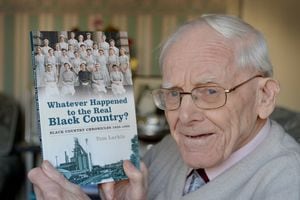
He released several books after stepping down as a councillor, with his latest coming in 2020 – Whatever Happened To The Real Black Country?, before he died on August 13 last year after catching a virus and spending around three weeks in hospital.

